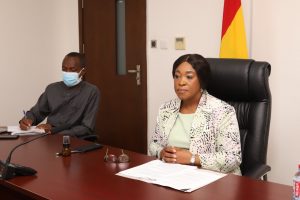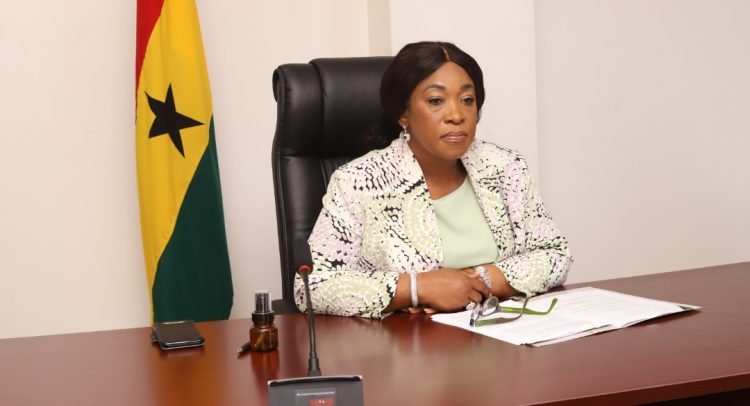President Nana Akufo-Addo of Ghana has indicated that the implementation of the African Union (AU) Financial Institutions will be crucial in the continent’s coronavirus recovery phase.
He made this known in a speech read on his behalf by the Minister of Foreign Affairs and Regional Integration, Shirley Ayorkor Botchwey, at the second mid-year coordination meeting of the AU Financial Institutions, in Addis Ababa, Ethiopia.
In his speech read on Thursday, October 22, 2020, the Ghanaian leader explained that “the pandemic has brought to the fore the importance of financial autonomy.”

According to him, most developed nations amidst the pandemic have had to commit huge sums to support and boost their economies due to their capacity and financial independence, whilst many countries are facing fiscal deficits, with some at a high risk of debt distress due to continuous borrowing.
“The COVID-19 pandemic has undoubtedly unleashed adverse consequences on African countries already battling various challenges,” according to him.
He said there was now consensus among economists and development practitioners alike that Africa will enter into a recession for the first time in 25 years due to the effects of the pandemic.
The International Monetary Fund (IMF), he said, estimated that Emerging Markets and Developing Economies (EMDE) will require US$ 2.5 trillion to effectively fight the pandemic and resuscitate their economies.
While the IMF is providing US$ 1.2 trillion in lending, he explained, there was a funding gap of US$ 1.3 trillion.
” To bridge this gap, the continent has to mobilize extra resources to close the fiscal space,” he said.

“This calls for innovation by all stakeholders, including African Financial Institutions, Stock Exchanges, Central Banks and the Private Sector to proffer short, medium, and long term financing solutions.”
Thus, he observed, “the implementation of the African Union Financial Institutions will be crucial in this recovery phase and in building more resilient and endogenous economies for an emerging Africa as well as in fulfilment of the goals set out in Agenda 2063.”
The African Union Financial Institutions, he said, will facilitate the creation of an enabling environment for a modern and strong African financial system to mobilize domestic and external resources to enable the diversification of intra-African export products, thereby, fostering regional and global competitiveness of the products.
The establishment of Pan African Stock Exchange will facilitate the integration of capital markets through cross-border trading and settlement of securities, removal of the stringent regulatory environment, help in mobilising resources from capital markets inside and outside Africa and channel diaspora’s remittances toward longer-term productive investments in African countries, according to President Nana Akufo-Addo.
“The African Investment Bank will complement the work of the African Development Bank in the utilization of available resources for the implementation of investment projects contributing to the strengthening of the private sector and modernization of rural sector activities and infrastructures.”
” It will promote public and private sector investment activities intended to advance regional integration of African states,” he said.
By Melvin Tarlue


